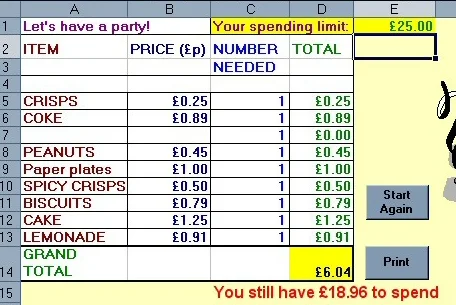This book lifts the lid on the practices that various media use to promulgate fake news even while appearing to be squeaky clean.
Read MoreTrust Me, I’m Lying

Trust Me, I’m Lying
This book lifts the lid on the practices that various media use to promulgate fake news even while appearing to be squeaky clean.
Read More
Forward 10 places!
If you insist on getting the kids to make or use physical computing kits/robots in the classroom, here arte 8 suggestions for making sure it’s all useful.
Read More
Wait! By Terry Freedman
A lot of Virtual Reality ‘solutions’ I’ve seen are just a massive waste of time and resources.
Read More
Be aware! By Terry Freedman
I’d rather teach pupils to program without going through the intermediary process of building a robot or anything else. Despite all the hype, I regard it as a massive waste of time.
Read More
Spreadsheet manual by Terry Freedman
Do you really need software and hardware manuals in school? (Spoiler alert: yes.)
Read More
Fake news, by Terry Freedman
Here is a very brief report of a conference about fake news, and an article about what the Department for Education could do to help tackle it.
Read MoreThe headline is a bit of a misnomer: in fact, there are 7 podcasts for teachers and one for kids. But that would have made for a pretty awkward title!
Read More
Filming in progress, by Terry Freedman
UPDATED Here are ten video channels of potential interest to teachers of Computing.
Read MoreUPDATED Here are ten podcasts that will help you understand more about computing or give you some ideas of things you can discuss in your lessons
Read MoreUPDATED This article introduces two further articles: 10 podcasts for Computing teachers, and 10 video channels for Computing teachers.
Read More
Partners. This illustration is from www.pixabay.com and has a CC0 licence.
This article details the steps that a few of us in ISTE, ITTE, TPEA and others have taken to investigate whether the ISTE Standards for Computer Science teachers, and their list of Computational Thinking Competencies, could be adapted for use in the UK. There’s also an opportunity for you to give us your opinions if you wish to.
Read MoreThis book aims to teach you how to think like a coder, rather then merely learning how to code. How far does it succeed?
Read More
BBC Basic screen, by Terry Freedman
To learn programming, it’s best to have some real problems which need solving. This article looks at several examples of the applications I’ve created, and why.
Read More
Illustration: Death by PowerPoint, by Terry Freedman
PowerPoint can be a very useful tool — if used with care.
Read More
Spending checker, by Terry Freedman
Spreadsheets have been dismissed by some people as boring, old hat, and about “only” office skills. Those people are wrong! In this article I look at how you can use spreadsheets to start teaching children about some programming concepts.
Read More
ed tech problems: no paper, by Terry Freedman
Something as simple as the printer’s paper tray being empty can cause mayhem. Here are a few suggestions for dealing with it.
Read More
Flipchart, by Terry Freedman
What kind of problems might you experience with an ordinary flipchart? And are flipcharts preferable to interactive whiteboards? Plus details of how to get hold of a free guide to getting the most out of your interactive whiteboard.
Read More
Photo by Nicole Honeywill on Unsplash
If you wear several different hats, but don’t want several different email addresses, you can use different email signatures instead. But how do you do that in Gmail?
Read More
IWB marker pen by Terry Freedman
In this the first article in this series, I look at the problem of permanent markers being used on the whiteboard. Believe it or not, there is a more useful response than “Aaaaaargh!”
Read MoreHelp to bring education technology alive by introducing a letter from Ada Lovelace to Charles Babbage into your Computing or education technology classroom.
Read More(c) Terry Freedman All Rights Reserved